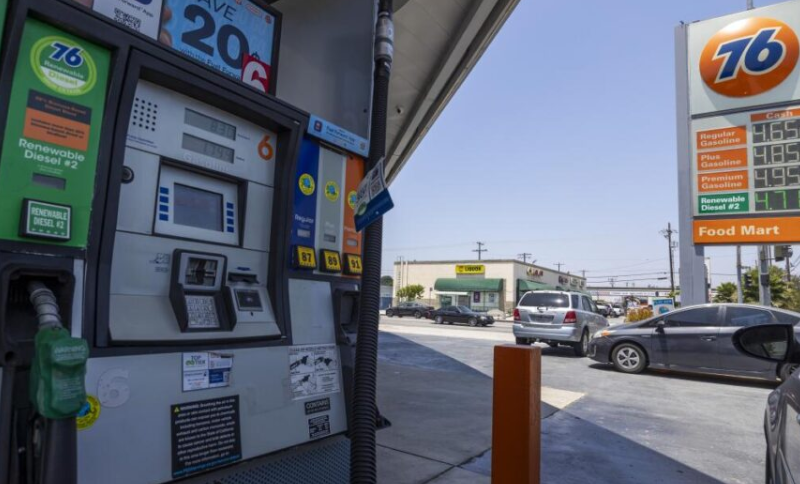California Governor Gavin Newsom has recently unveiled a controversial proposal that would require oil refiners to maintain minimum reserves of gasoline in an effort to prevent price spikes at the pump. While this move is being framed as a way to protect consumers from sudden increases in fuel prices, critics argue that it is a misguided approach that could lead to more harm than good.
The proposed plan, which would mandate that refiners maintain a certain level of gasoline reserves, has sparked significant concern among industry experts and consumers alike. According to the California Energy Commission, there were 63 days last year when California refiners had less than 15 days of gasoline supply, leading to price spikes that cost drivers an estimated $650 million. Newsom, a Democrat, claims that these price increases were simply “profit spikes for Big Oil,” and that requiring refiners to maintain reserves would stabilize prices and prevent exploitation by oil companies.
However, this plan overlooks the complex realities of the energy market and the operational challenges faced by refiners. Forcing companies to maintain large reserves of gasoline will undoubtedly increase their operational costs, which will likely be passed on to consumers in the form of higher prices. This could result in the very price spikes that Newsom’s plan is supposed to prevent.
Catherine Reheis-Boyd, president and CEO of the Western States Petroleum Association, has strongly criticized the proposal, calling it “nothing more than a political attack on consumers and our industry.” She argued that imposing new mandates on energy producers based on what she described as “falsehoods” amounts to regulatory malpractice. Reheis-Boyd also highlighted the logistical challenges and costs associated with maintaining large gasoline reserves, which could lead to disruptions in supply and further inflate prices at the pump.
Furthermore, this proposal comes at a time when California’s relationship with the oil industry is already strained. The state has some of the highest average gasoline prices in the country, partly due to its strict environmental regulations and ambitious targets for electric vehicle adoption. As California continues to push for a transition to cleaner energy, it risks alienating the very industry that is essential to keeping the state’s economy running in the present.
California’s decision to pursue this regulatory approach stands in stark contrast to the federal government’s recent actions. Just three months ago, the U.S. Department of Energy sold off its Northeast gasoline reserve, which had been created after Superstorm Sandy. The reserve was criticized as being expensive to maintain and ineffective at enhancing energy security. This raises questions about the efficacy of maintaining large gasoline reserves, particularly in a state as complex as California.
In summary, while Governor Newsom’s proposal may be well-intentioned, it is a shortsighted solution that fails to address the underlying issues within the energy market. Instead of imposing costly mandates on refiners, California should focus on working collaboratively with the industry to find practical solutions that ensure reliable fuel supplies and protect consumers from price volatility. By targeting the very companies that are integral to the state’s energy infrastructure, this plan risks exacerbating the problems it aims to solve.








